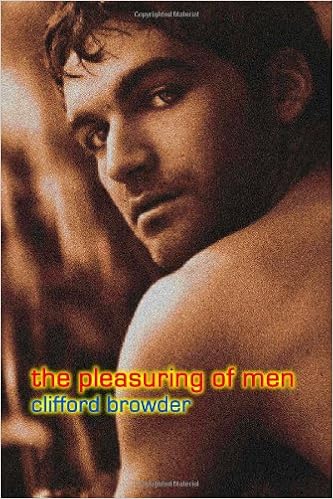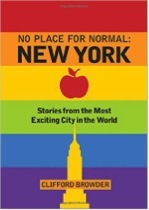Yay! The manuscript
of my historical novel Bill Hope His
Story has been accepted by a small press, Anaphora Literary Press, for
publication, and speedy publication at that, since hopefully it will appear by
early June, in time for a near cosmic event to be described hereafter. Which brings me to the subject of small
presses.
Small presses are a
world of their own, filling the vacuum left by the big presses, when the
biggies stopped publishing and promoting new authors in hopes that they would
one day produce bestsellers or otherwise repay the investment involved. And who, by the way, are the big U.S. trade
publishers, the publishers who sell to the general public? In New York there are five: HarperCollins,
Macmillan, Penguin Random House, Simon & Schuster, and Hachette Book Group,
this last a division of a French publisher based (logically enough) in France. One might ask what happened to Houghton
Mifflin? A respected and venerable firm,
it is based in Boston, far removed from the New York brouhaha; after a
bewildering number of corporate metamorphoses, it emerged in 2007 as Houghton
Mifflin Harcourt.
Harcourt? Ah, that
rings a bell. But what is the descendant
of the Harcourt Brace Jovanovich of yore, a major New York publisher, doing up
in bean town? Years ago I did editing on
a freelance basis for it (Harcourt, not bean town), even working for a while as
a researcher/flunky for the great Jovanovich himself, a giant of the trade, being
on call 24/7 should he need some information posthaste. (Ah, there are tales to tell.) No question, Mr. Jovanovich was a dynamo of a
CEO who through a dizzying series of acquisitions turned his company into a major
player in the book trade. And this from
a son of immigrants who started out as a Harcourt textbook salesman and within
seven years, at age 34, became CEO of the company, which tacked his last name
on in 1970. What mix of luck and fate,
what ruthless ambition and superlative ability, what conniving and cajoling,
and what demolishing of rivals fueled this meteoric rise, I don’t profess to
know, but I suspect they all played their part.
That William Jovanovich had more in mind than books became
apparent when he acquired insurance companies and not one, but two, three, then
four Sea World marine parks, thus making Harcourt a conglomerate. These activities I became aware of when he
asked me to fax him a map of Central Park, an imitation of which he was
planning to install in one of the parks.
The map was duly faxed, but I and the employee faxing it wondered at his
plan to view Central Park from a helicopter, rather than traipsing it on
foot. Strange are the ways of the
mighty.
In 1982 Mr. Jovanovich took the company out of New York, a
move that occasioned much confusion and dismay among the modest toilers in the
vineyard, the college textbook editors I worked with, many of whom declined to
be relocated to Texas. But worse was in
store. In 1987 a hostile takeover bid
compelled Jovanovich to plan a recapitalization that left the company mired in
debt; the stock plummeted, mass terminations of employees and sales of assets
followed, and in 1990 Jovanovich resigned as CEO, a sad ending of what had been
a stellar career. Harcourt (soon
stripped of “Jovanovich” – sic transit gloria mundi) succumbed to a merger
thereafter, and in 2007 it was gobbled up by Houghton Mifflin, which explains
how “Harcourt” got tacked on to “Houghton Mifflin.” If I have lingered a bit on the ups and downs
of Harcourt and Mr. Jovanovich, it is to show how the world of big publishing
has changed, with more emphasis on mergers and acquisitions, and less on such a
stodgy old product as books. Which is
why small presses exist, being still preoccupied with books.
Though there have always been small presses, and some of
them quite prestigious, new ones have appeared in record numbers recently, like
phallic mushrooms after a heavy rain. So
don’t say that publishing is dying in the U.S.; in spite of Facebook and
twittering tweets, and television and the Internet, people – some people -- do
read, and there are books for them from a hundred presses (no, I can’t name a
hundred, but that doesn’t mean they don’t exist), not to mention self-published
books. Yes, there are books from the Big
5 too – all the best sellers you’ve heard of, and countless more – usually
presented with hoopla and hype. But
there are far more self-published titles – more than 700,000 in 2015, versus
some 300,000 traditionally published books.
And maybe there are too many books: book sales are falling fast,
competition is intense, and publishers both big and small now expect authors to
carry the burden of marketing. Yes,
authors – those quiet, reclusive, pen- or key-pushing sensitives addicted to
the written word, are supposed to get out there and sell, sell, SELL their books;
not by wish but by publishers’ fiat, the hermit has become a huckster.
If you consider the situation of small publishers, this
isn’t so surprising. Their situation is
precarious, for small presses run as much on hope and aspiration as on
financial stability; in other words, many are flirting with failure,
perennially risk going bust. So what are
they to do? The out-and-out vanity press
publishes your book for a hefty fee, does little to promote it, and keeps on
teasing you with offers of publicity and marketing for further hefty fees. Other presses survive by demanding a
stipulated amount of sales from the authors.
Anaphora Literary Press, my newfound publisher, requires that I buy 50
copies at a 25% discount from the list price ($15 for a $20 book), after which
further sales to the author are at the standard author’s discount of 40% ($12
for a $20 book). And those 50 copies
must be sold; they can’t be sent out for reviews.
Does that sound exorbitant?
Not in the world of small presses.
A small press that was eager to publish a volume of my poetry required
75 pre-publication sales before printing the book. That meant rounding up 75 friends and acquaintances
– most of whom are probably less than ardent readers of poetry – and asking
them to buy a pig in a poke. When I
consulted a friend, a published poet who does readings all over the country, he
admitted that, even with all his contacts, he couldn’t come up with 75 such
victims. So I said no to the publisher,
who, unconvinced by my e-mail rejection (or maybe unaware of it), sent
the nicest little note by snail mail, repeating the offer, only to be rejected
again. But what was that, compared to
another small press that requires each of its authors to buy 200 (that’s what I
said – 200) copies of their book. I have
dark fantasies of their authors sitting at home surrounded by towering stacks
of unsold books, coaxing and cajoling their friends to buy just one little book
at a bargain price – a terrible test of friendship. (Indeed, it’s perilous having an author as a
friend: “Oh my God, he’s published another book. I suppose we’ll have to buy it.”)
So there is my brief glance at the publishing world of today
– a world in constant flux. Which
anticipates my next post, on Book Expo and BookCon, stellar events that will
take place right here in New York next June.
Never heard of them? All will soon
be explained, plus an account of the most exciting adventure – or the grossest
folly – that I have ever perpetrated.
P.S. I only have to sell 48 books from Anaphora, since two friends -- uncoerced by me, I swear! -- have promised to buy a copy.
* * * * * *
BROWDERPOMES: For two new poems of mine, on ninny serene versus deep, and proverbs for the wicked, click here and scroll down to pp. 34 and 35.

P.S. I only have to sell 48 books from Anaphora, since two friends -- uncoerced by me, I swear! -- have promised to buy a copy.
* * * * * *
BROWDERPOMES: For two new poems of mine, on ninny serene versus deep, and proverbs for the wicked, click here and scroll down to pp. 34 and 35.
For my short poem “I Crackle” and a stunning photo of me, go here.
For five acceptable poems, click here and scroll down.
To avoid five terrible poems, don't click here.
BROWDERBOOKS: No Place for Normal: New York / Stories from the Most Exciting City in the World, my selection of posts from this blog, has received these awards: the Tenth Annual National Indie Excellence Award for Regional Non-Fiction; first place in the Travel category of the 2015-2016 Reader Views Literary Awards; and Honorable Mention in the Culture category of the Eric Hoffer Book Awards for 2016. For the Reader Views review by Sheri Hoyte, go here. As always, the book is available from Amazon and Barnes & Noble.
 |
The Pleasuring of Men (Gival Press, 2011), my historical novel about a young male prostitute in the late 1860s in New York who falls in love with his most difficult client, is likewise available from Amazon and Barnes & Noble.

Coming soon:
As just announced, Book Expo and BookCon 2017, with me avoiding the one and
hitching myself to the other.
© 2017 Clifford Browder